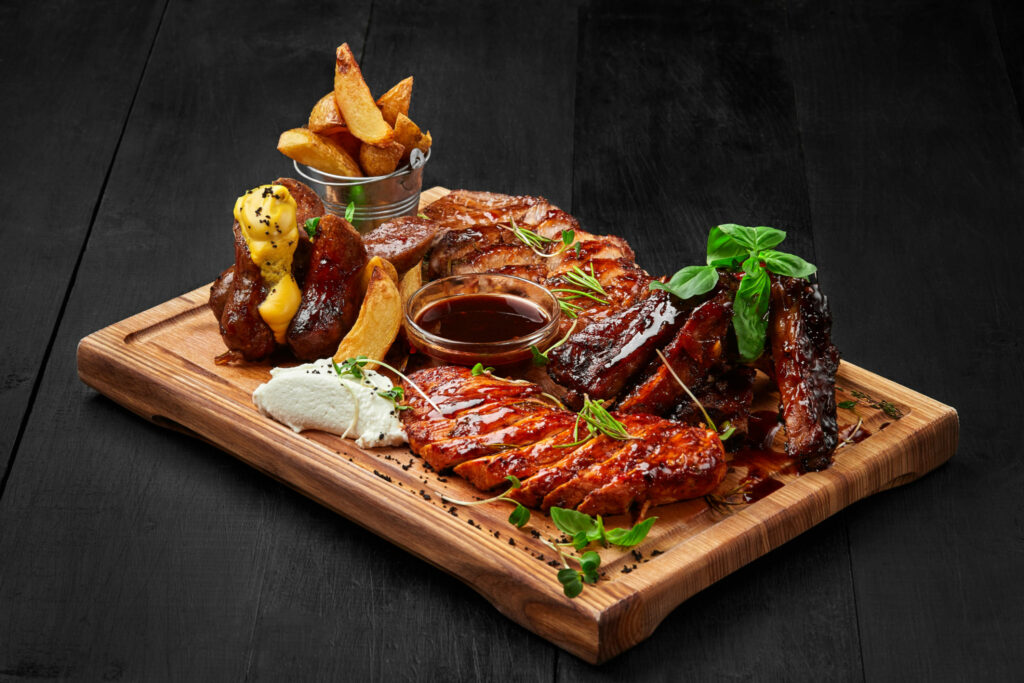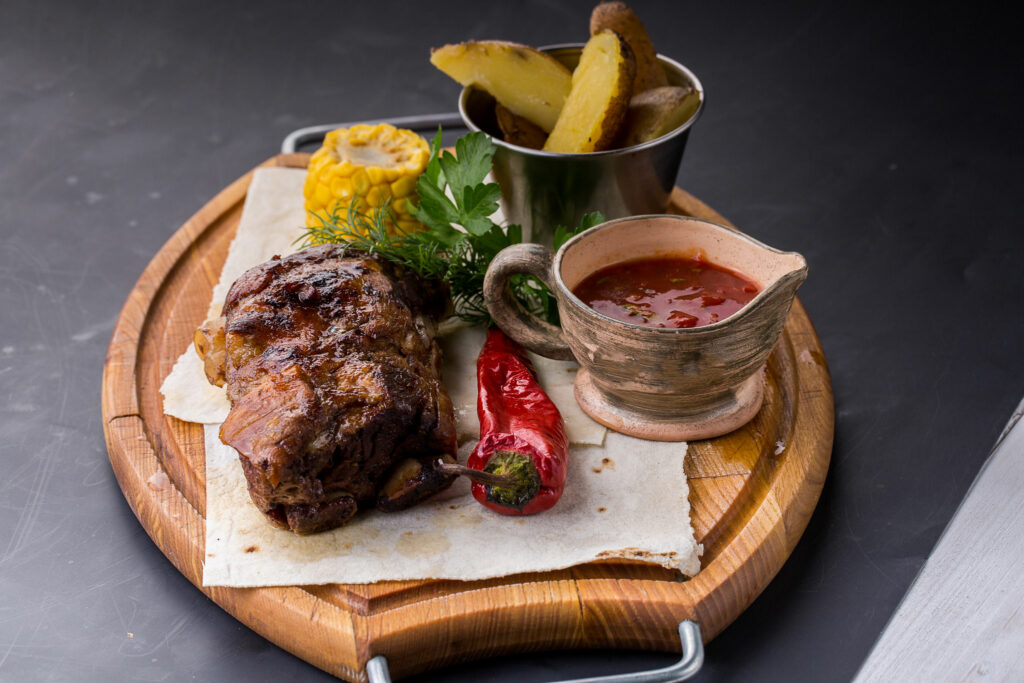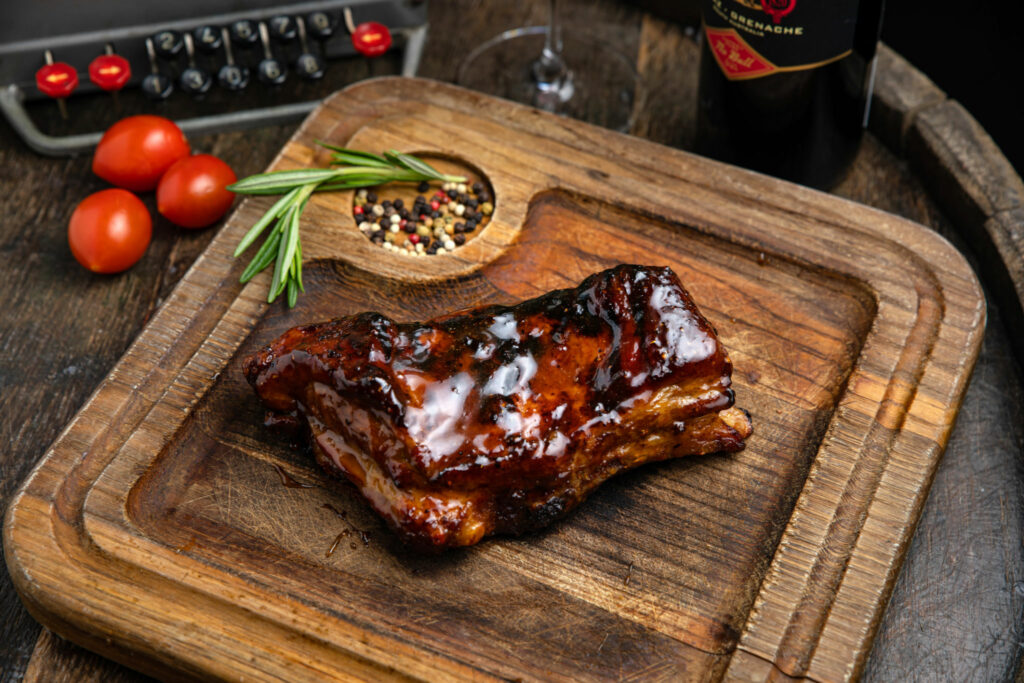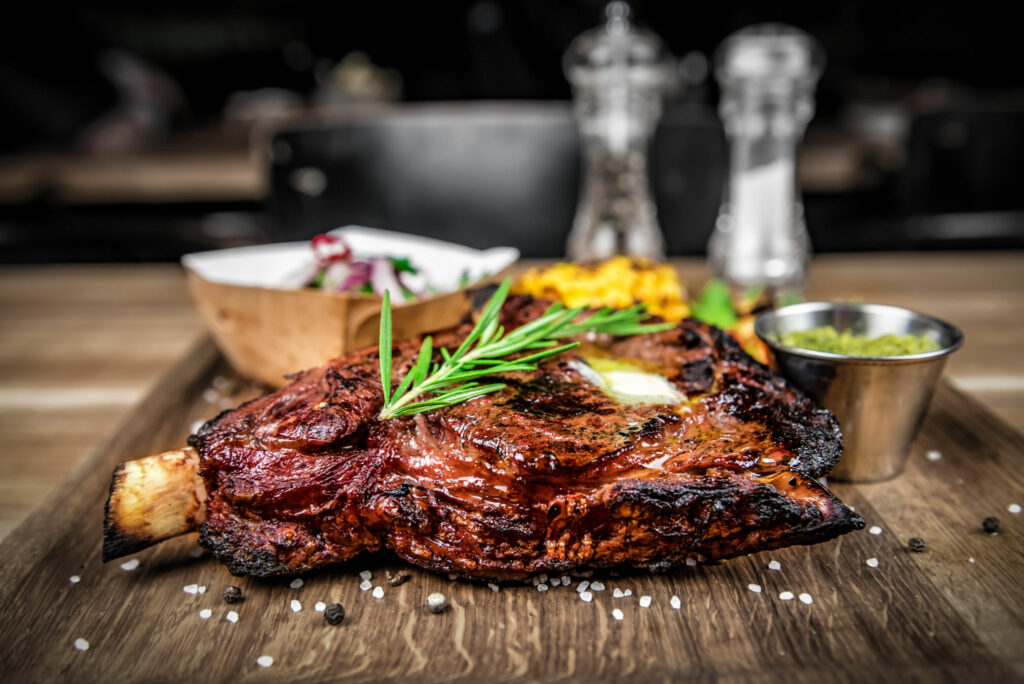It’s summertime, which means barbecues and grill-outs! Grilling is a popular cooking method that imparts a delicious flavor to food. But what effect does grilling have on the nutrients in food? This blog post will explore the various impacts of grilling on food nutrients.

Stay tuned for tips on how to compensate for these impacts so you can enjoy your grilled foods without worrying about losing out on essential nutrients.
What Are The Health Benefits Of Grilling Food?

The health benefits of grilling food are well-documented. There are many benefits to grilling food, including;
1. Reduces The Risk Of Cancer.
Cancer is caused by the formation of carcinogens, which are created when meat is cooked at high temperatures. Grilling meat at a lower temperature can help reduce the formation of carcinogens.
2. Reduces The Risk Of Heart Disease.
Grilling food can help reduce the risk of heart disease by reducing the amount of fat in food. It is also thought to help improve cholesterol levels. By grilling food, you can enjoy all the flavor of fried foods without the unhealthy fats.
3. Promotes Weight Loss.
Grilling food can promote weight loss by helping to reduce the calorie content of meals. In addition, grilled foods are often more filling than their fried counterparts, meaning you are less likely to overeat.
You can also save calories by grilling leaner cuts of meat and avoiding high-fat sauces and marinades.
4. Increases The Absorption Of Nutrients.
The high heat of grilling helps to increase the absorption of nutrients from food. Some studies have shown that grilled meat is more nutritious than cooked meat.
This is because the high heat of grilling helps to release nutrients that would otherwise be lost during cooking.
5. Retains More Vitamins And Minerals.
Grilling food helps to retain more vitamins and minerals than other cooking methods, such as boiling or frying. When food is boiled, many of the water-soluble vitamins and minerals are lost in the cooking water.
Frying also causes the loss of some nutrients. However, grilling helps to preserve these nutrients so that they can be absorbed by the body.
6. Enhances The Flavor Of Food.
The intense heat of grilling helps to enhance the flavor of food. You can further improve the flavor of grilled food by adding herbs and spices, marinating meat before grilling, or using a dry rub.
7. Is A Low-Fat Cooking Method.
Grilling is a low-fat cooking method. It uses little to no oil, meaning that the fat content of food is reduced. This makes grilled food a healthier option than fried food.
8. Requires Less Oil Than Other Cooking Methods.
Grilling requires less oil than other cooking methods, such as frying, which can decrease the fat content of food and makes it a healthier option.
9. Can Be Done Outdoors.
Grilling can be done outdoors, which makes it a great summertime activity. Many people enjoy grilling because it allows them to spend time with family and friends while enjoying the outdoors.
10. It Is A Quick And Easy Cooking Method.
Grilling is a quick and easy cooking method that doesn’t require much prep time. Thus, it’s a great option for busy weeknights or lazy weekends.
How Does Grilling Affect The Nutrients In Food?

Grilling can have both positive and negative effects on the nutrients in food. It is important to be aware of these effects so you can make sure you are getting the most nutrition from your grilled food.
1. The High Heat Of Grilling Can Destroy Some Nutrients.
The high heat of grilling can destroy some of the nutrients in food, such as vitamins C and B.
In some cases, grilling can also cause the formation of harmful compounds, such as heterocyclic amines (HCA) and polycyclic aromatic hydrocarbons (PAH).
2. Grilling Can Increase The Risk Of Cancer.
The formation of carcinogens can be increased when meat is cooked at high temperatures. You can reduce the risk of cancer by cooking meat at a lower temperature or by using a leaner cut of meat. It is also important to avoid charring meat, as this can further increase the risk of cancer.
3. Grilling Can Promote Weight Loss.
Grilling food can promote weight loss by helping to reduce the calorie content of meals. In addition, grilled foods are often more filling than their fried counterparts, meaning you are less likely to overeat. You can also save calories by grilling leaner cuts of meat and avoiding high-fat sauces and marinades.
4. Grilling Can Increase The Absorption Of Nutrients.
The high heat of grilling helps to increase the absorption of nutrients from food. Some studies have shown that grilled meat is more nutritious than cooked meat.
This is because the high heat of grilling helps to release nutrients that would otherwise be lost during cooking.
5. Grilling Can Retain More Vitamins And Minerals.
Grilling food helps to retain more vitamins and minerals than other cooking methods, such as boiling or frying. When food is boiled, many of the water-soluble vitamins and minerals are lost in the cooking water.
Frying also causes the loss of some nutrients. However, grilling helps to preserve these nutrients so that they can be absorbed by the body.
6. Grilling Can Enhance The Flavor Of Food.
The heat of grilling helps to enhance the flavor of food. You can further improve the flavor of grilled food by adding herbs and spices, marinating meat before grilling, or using a dry rub.
What Are Some Tips For Healthy Grilling?
If you’re looking to grill in a healthy way, there are a few things you can keep in mind.

1. Avoid High-Fat Sauces And Marinades.
High-fat sauces and marinades can increase the calorie content of grilled food. You should avoid these if you’re trying to eat healthily. This is especially important if you’re grilling leaner cuts of meat.
2. Use Leaner Cuts Of Meat.
Using leaner cuts of meat can help to reduce the fat content of your grilled food. You should look for cuts of meat that are low in fat, such as chicken breasts, pork loins, and fish fillets.
For red meat, you can also trim away any visible fat before grilling.
3. Trim The Fat Off Of Meat Before Grilling.
Trimming the fat off of meat before grilling can be helpful in reducing the fat content of your meal. You should remove any visual fat from the meat before cooking. This includes both external and internal fat.
4. Pre-Cook Meat In The Oven.
Pre-cooking meat in the oven can help to reduce the amount of time it needs to be cooked on the grill. This will help to minimize the formation of carcinogens.
On the other hand, you should avoid pre-cooking meat if you’re trying to retain more of the nutrients.
5. Grill At A Lower Temperature.
Grilling at a lower temperature can help to prevent the formation of harmful compounds. You should aim for a grill temperature of around 300 degrees Fahrenheit.
In the meantime, you can also brush the meat with olive oil to help keep it from sticking to the grill.
6. Avoid Charring Meat.
Avoid charring meat by not letting it cook for too long on the grill. Charred meat can contain high levels of carcinogens. For the safest option, you can remove the meat from the grill before it gets too dark.
7. Use A Leaner Cooking Method.
Using a leaner cooking method, such as grilling, can help to promote weight loss. Grilling is a healthier option than frying or boiling, as it helps to retain more nutrients in food.
8. Add Herbs And Spices To Grilled Food.
Adding herbs and spices can help to enhance the flavor of grilled food without adding calories. You will also marinate the meat before grilling, which will help to tenderize it and add flavor.
Conclusion
GrillCharms is passionate about helping people make the most of their grilling experiences. I’ve researched and compiled information on how to grill different types of food to perfection, as well as what nutrients are lost (or gained) during the cooking process.
Whether you’re a novice or an experienced griller, I hope that the tips and tricks will help you create healthier, more delicious grilled meals for your loved ones.
- The 9 Best BBQ Grills for Smoking Brisket - December 29, 2022
- 6 Mouth Watering Grilled Shrimp Recipes - September 16, 2022
- 6 Delicious Grilled Desserts - September 16, 2022

